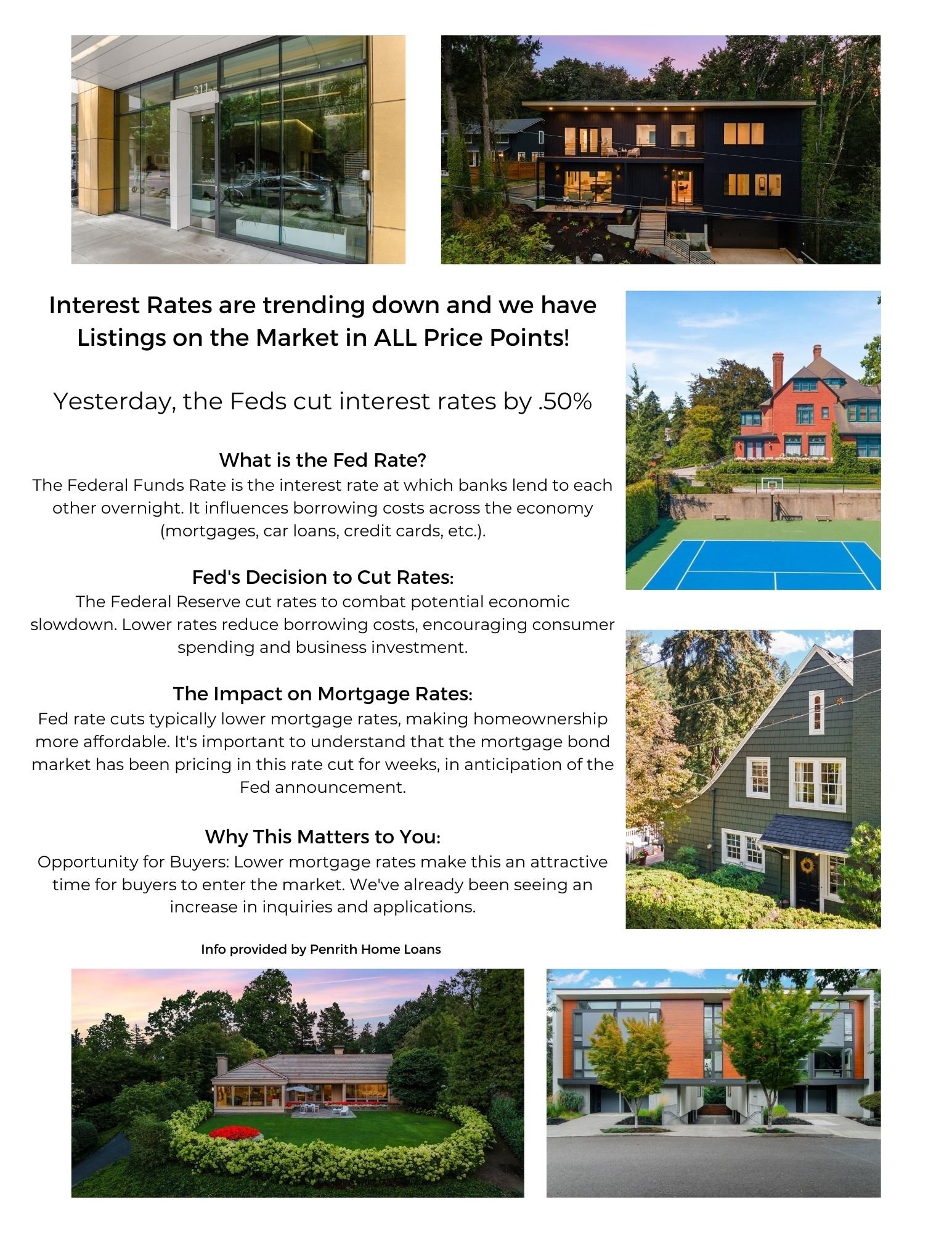The Casey Condominiums is ideally located in the heart of the Pearl. Just steps from award-winning restaurants, bars, shops, art galleries, and the city, it is the perfect place to call home.
• Powell’s City of Books is .2 miles away
• Portland Center Stage at the Armory is .5 miles away
• Blick Art Supplies is .1 miles away
• Tasty n Alder is .5 miles away
• French Quarter Linens is .2 miles away
By Clare Trapasso | June 11, 2020
Anyone who's planning to buy a home, or thinking about refinancing the loan on their current abode, has probably been giving mortgage interest rates a lot of attention—and getting frustrated as they fluctuate up and down.
The average interest rate for the most common type of loan hit a new all-time low of 2.94% on Thursday, according to Mortgage News Daily. That's for a fixed-rate 30-year loan. While that's great news for borrowers, who can potentially save hundreds of dollars a month as a result, rates may not stay below 3% for long.
Mortgage rates have been all over the place, falling after the coronavirus pandemic threw the nation's economy into turmoil, then rising temporarily as lenders were deluged by a tsunami of refinance applications. Last week, they were on the upswing again, climbing to 3.24% on Friday, after May's unemployment report showed the economy was recovering.The most recent plunge comes thanks to the U.S. Federal Reserve making an announcement on Wednesday that drove investors back into mortgage bonds, which drove rates back down.
"Rates have changed rapidly over the past [few] days," says Matthew Graham, chief operating officer of Mortgage News Daily. "For the first time ever, the average best-case-scenario rate on a conventional, 30-year fixed-rate [loan] is under 3%. Most lenders are able to quote 2.875%."
But he cautions that these ultralow rates are reserved for borrowers with "flawless credit, more than 20% equity, and no other additional risk factors."
Folks don't quite need a finance degree to understand what's going on—but it sure wouldn't hurt.
Lenders typically don't like to hold on to the mortgages they make, as it ties up cash that could be used to make new loans. So they sell the loans, which are bundled into a collection of mortgage-backed securities (aka mortgage bonds), in the secondary mortgage market. These securities are similar to U.S. Treasury bonds—they're viewed as safer, yet less lucrative, investments than the stock market.
When the economy is strong, investors often prefer to sink their money into stocks, where they hope to get better returns, and when it's weaker, they'll often turn to bonds. When the unemployment numbers came out, investors were encouraged by the better-than-expected unemployment rate. Many moved money out of Treasury and mortgage bonds and into the stock market.
Since mortgage rates move in the opposite direction of bond prices, when bond prices fall, mortgage rates go up—and vice versa. That's what happened on Friday.
However, on Monday the National Bureau of Economic Research declared the U.S. had officially entered a recession in February. That spooked investors, who suddenly rediscovered the appeal of boring but stable bonds.
Then the Fed announced it would continue to purchase mortgage bonds in the secondary market. The move was designed to keep the market strong—and brought investors back to mortgage bonds. When demand rises, so do bond prices. Hence, mortgage rates fell.
Whether mortgage rates will stay below 3% is anyone's guess. It will likely depend on the strength of the economy, how quickly a coronavirus vaccine becomes available, and a whole host of still unknown factors.
“Mortgage rates move up and down all the time," says realtor.com Senior Economist George Ratiu. "I expect for the rest of the year that they’ll bounce around the 3% to 3.5% range.”
On April 7, the IRS issued Notice 2020-23, extending a variety of deadlines, including 1031 deadlines. Although the Notice is confusing, because it is not written like the typical Disaster Relief Notices, this Notice extends any 45-day or 180-day deadline that occurs between April 1 and July 14, to July 15, 2020.
1031 Fund Security
A major role of a Qualified Intermediary is to safeguard taxpayer funds during a 1031 Exchange. Since Qualified Intermediaries are not regulated by the federal government or by most states, financial assurances, expertise, company strength and reputation are critical factors.
Real estate professionals are working to convince the IRS to change the start date from April 1st to January 20th so that the extensions apply to more taxpayers. Please note that this is different from the usual disaster extension that provides for an extra 120 days.
Here are two examples to illustrate the current extension.
Example 1: Exchange began April 1, 2020. 45th day is May 16, which would be extended to July 15, 2020. Taxpayer must still close on replacement property by Sept 28, which is the 180th day; because Sept 28 is after the last day of the disaster period (July 15).
Example 2: Exchange began Dec 31, 2019, 45th day is Feb 14, 2020. ID period is not extended because it is before April 1. The 180th day is June 28, which would be extended to July 15, 2020. As always, exchangers should speak with their tax advisors to determine if they are eligible for an extension.
This remains a fluid situation and should be confirmed with the IRS.











































